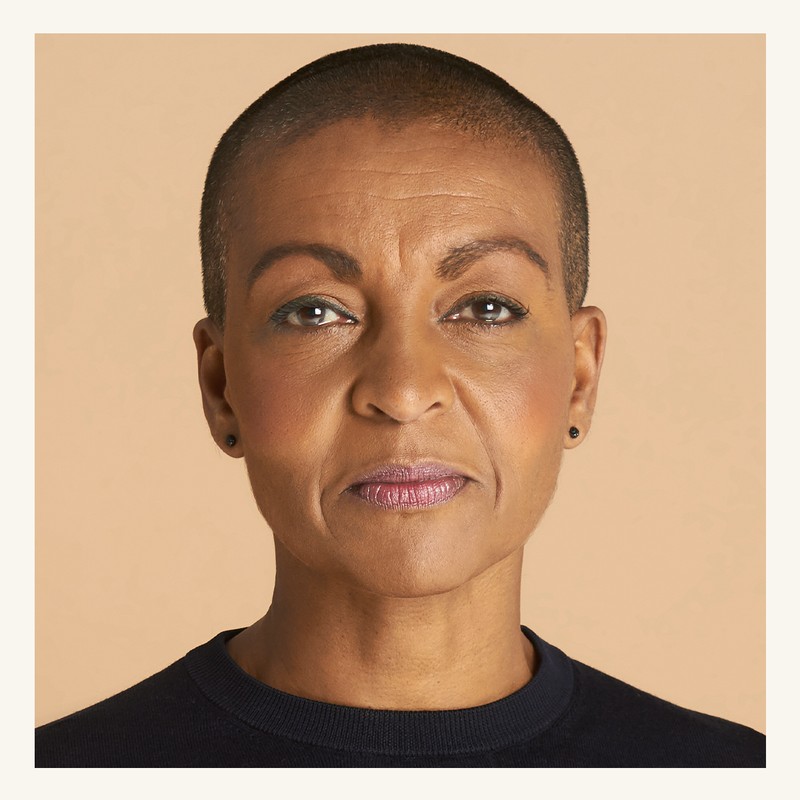
Chapters In My Life: Adjoa Andoh
Chapter One: Early Childhood
“I was born in 1963 at St Brendan’s Nursing Home in Clifton, Bristol. My mother was a schoolteacher and my father had come to the UK from Ghana where he’d worked on a national newspaper. He left Ghana due to politics and became an accountant, which wasn’t what he wanted to do, but he couldn’t get work as a journalist over here in the 50s. We lived in Bristol until I was about six months old before moving to Leeds. We stayed in Leeds until I was four, then moved to a village in the Cotswolds. I have a brother who’s nearly four years younger than me – he’s probably my best friend. He’s a musician and lives in America, but we’re still very close. He’s my wise counsellor.
“In the Cotswolds, I was a young Black girl with a Yorkshire accent in the middle of a tiny farming village. If you were from three miles away or a village over the hill, you were a stranger – so we were off-the-planet Martians! It was the 60s but the Cotswolds was like being in the 40s. We received a range of welcomes, from the very positive to the not so positive, and everything in between. My childhood was spent blackberry picking with the old lady who lived across the wall from us and meeting her friends, so I was often mixing with people who were born in the late 1800s and had never left the village. It was all quite magical in lots of ways and I had lots of adventures. Life was very outdoorsy and I loved it: there were lots of fields, cows, sheep and treehouses by the stream, and I learned to swim in the freezing outdoor pool in the next village. We had summer fetes, sports days and Christmas teas in the village hall. The first film I saw in the hall, which was screened on someone’s fly projector, was Annie Get Your Gun and we all sat cross-legged on the floor.
“I loved primary school. I was a bright kid but got walloped quite a lot until I learned how to fight back. I had lots of marvellous friends and a brilliant headmaster. I liked making things and, like lots of kids, was full of imagination and loved dressing up. I used to direct plays and make our parents watch them, for which they had to buy a ticket. As a family, we spent lots of our time camping in France, Scotland and Cornwall – all over the place, really. The world felt pretty marvellous back then.”
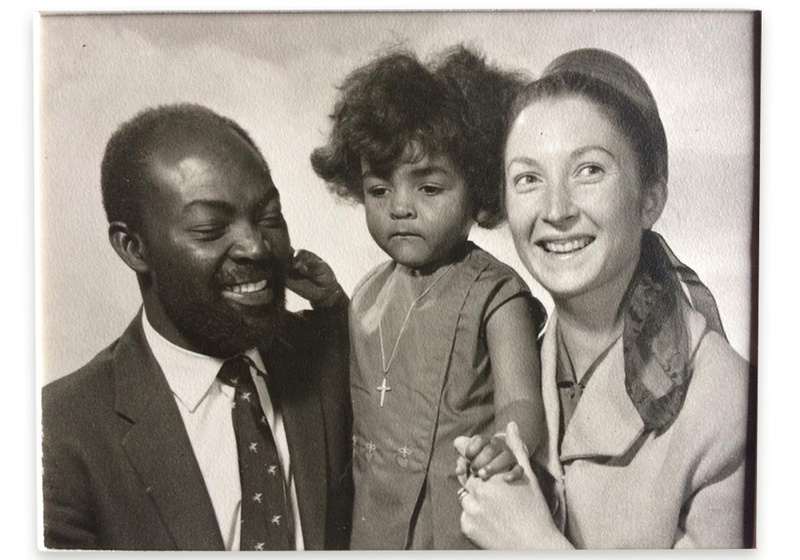
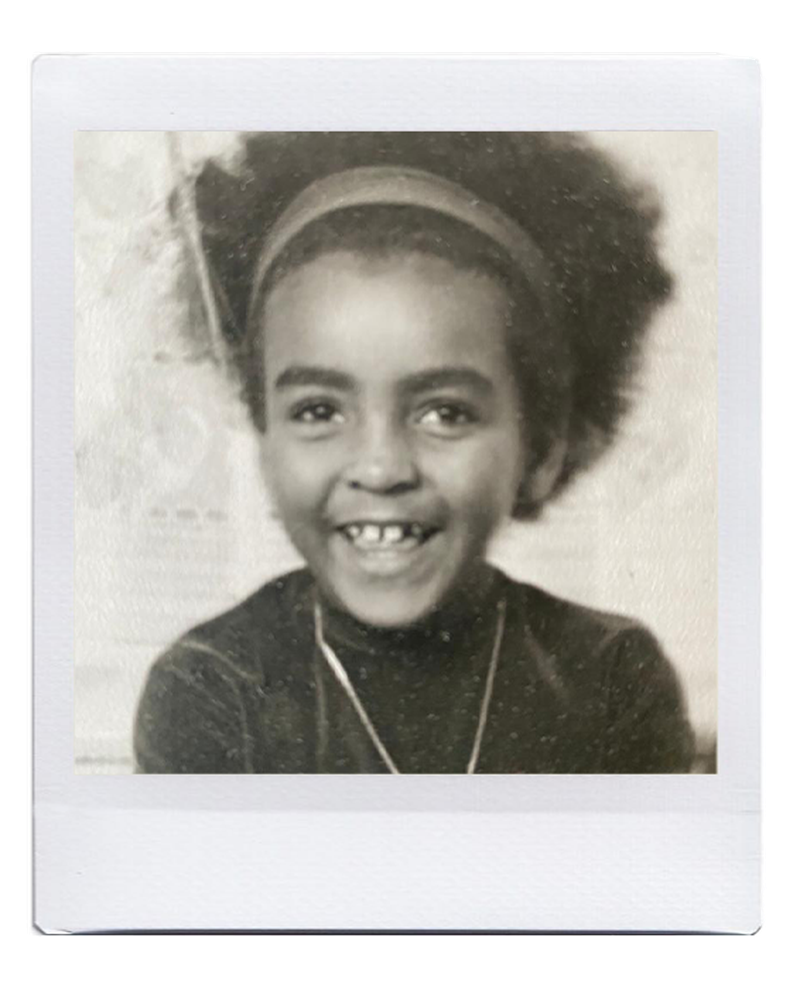
Chapter Two: Growing Up With Music & Sport
“My dad was a musician on the side and toured with folk bands. When I was a kid, I didn’t realise that not everybody sang songs with their family. At bedtime, we'd often sing together and my dad would get out his guitar – I thought everybody’s dad did that! I grew up around lots of music in our house, with everything from Sibelius and Vaughn Williams to African singers like Miriam Makeba and Nina Simone. There was a lot of 70s music too, like Roberta Flack and Donny Hathaway. My brother and I also grew up with a broad range of instruments in the house and music on the record decks. We both love vinyl to this day and listening to music.
“We were also a very sporty family. Dad played squash and mum was very athletic. My uncle played rugby for England in the 70s, so we all grew up watching it. I’m a keen viewer but rubbish at sports. I went to secondary school a year early though. My mum was the head of year. She was also a choreographer, a history teacher, the head of RE and a games teacher. The only corporal punishment I ever received in school was from her! I was always quite separate from her at school, but I was lucky she was quite a popular teacher.”
Chapter Three: At A Crossroads
“When I reached sixth form, I had a bit of a meltdown. I was supposed to go to Cambridge to read law, but my A Levels were a car crash. I left school, resat my exams and decided I’d had enough of education. I worked for Lloyds bank for a year, but I wasn’t very good at it as I was rubbish with numbers and not very interested. At that point, I was also a punk, so didn’t really fit in at a bank! Afterwards, I went and did a law degree at Bristol Polytechnic (not then known as the University of the West of England) but only lasted two years into the course. When I was 21, I packed it in, got a job in a legal aid centre in Bedminster, took up the cello and started acting classes in a Black women’s group. I was eventually invited to audition for a show in London that one of the women in the group had secured funding for. I got the job, left my little bedsit in Bristol and moved to London for what I thought would be two months. I’m still here.
“That was how I fell into acting. I’d always loved it as a child, but growing up it wasn’t something I imagined I could do as a career. In the early days, I often suffered from imposter syndrome and thought someone would tap me on the shoulder and say, ‘Where did you train? Oh, you didn’t train? Get out of my rehearsal group.’ That went on for a long time. Staying in London, I moved into a co-op in Brixton but didn’t get any acting work for nearly a year, so I modelled for life-drawing classes and worked various cleaning jobs. Co-ops were funded by Lambeth Council in those days and you’d get an architect and grant. I learnt how to lay concrete floors and build window and door frames. Our group rebuilt a derelict house from the ground up. When I think back on it, it was brilliant.”
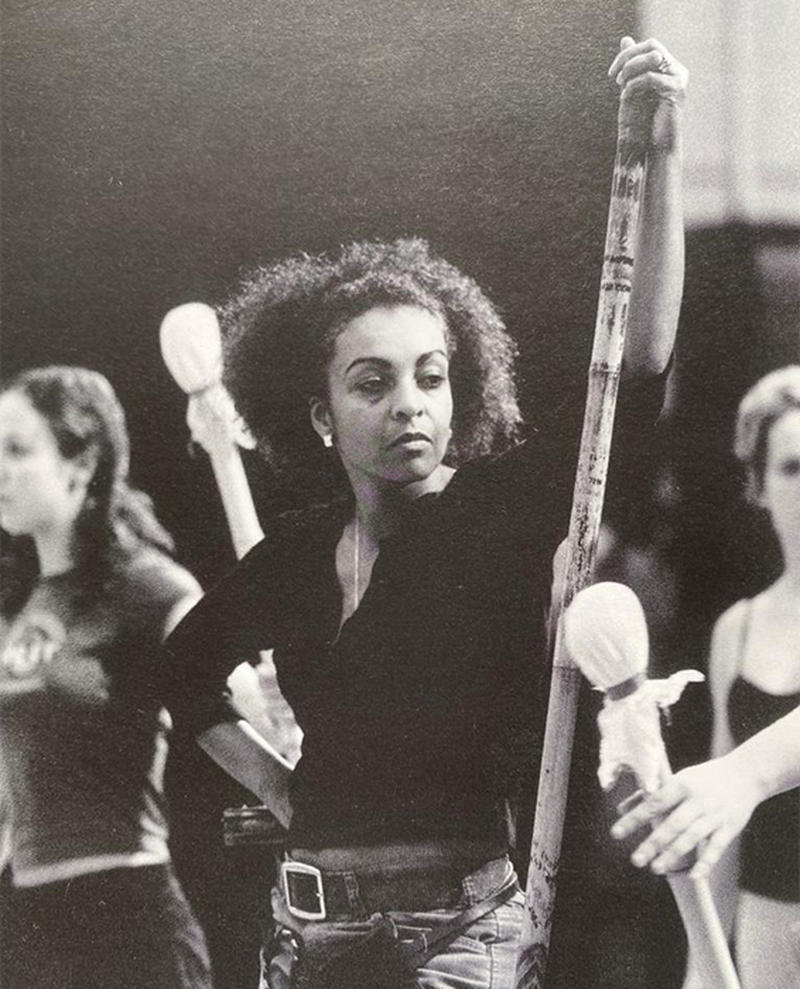
Chapter Four: Life On The Stage
“I got my second acting job in September 1985 with a feminist touring company called Theatre Centre. We toured schools, community centres and youth theatres. It was a wonderful experience and I still have many friends from that time. We travelled all over the country during and after the miners’ strike. Seeing the devastating effect it had on communities had a very profound effect on me. Our show ended up going to Canada and Italy, and it gave me a taste for the opportunities that acting could bring – meeting different people and travelling the world.
“A few years ago, I was in a play at the National Theatre called Stuff Happens. The title’s based on a quote by Donald Rumsfeld, the defence secretary in George Bush’s government when they went into Iraq. The play was about the run-up to the invasion, on stage only a year after it happened, so it was such a current topic and got a huge amount of attention. The play was directed by the great Sir Nicholas Hytner and there was a lot of buzz around it – officials from the UN came to see it, as well as politicians and journalists. I played Condoleezza Rice who’s an extraordinary woman and incredibly fascinating. That has to be one of my highlights on the stage.
“Another was Richard II at The Globe which I co-directed a couple of years ago. It was the first Shakespeare production played by an all-women-of-colour cast in the UK. I played Richard II and I was able to edit the script and work on the design. I loved the idea that women of colour, who have all sorts of connections to this country, could tell the story of England – Richard II is a great love letter to England after all.”
Chapter Five: Hitting The Small Screen
“During my career, I’ve loved meeting people who I would never have met if I wasn’t an actor. Doctor Who was definitely a highlight as I got to work with Russell T. Davies. What I find really fascinating about acting are the consequences of the work, that you can’t really imagine, that can have a huge impact on someone’s life. At the time, I played the character of Francine Jones [mother of Martha Jones – Doctor Who’s companion] and I remember going to a Doctor Who convention in LA when a young transgender person came up to me and said they’d seen an episode of the show which had given them the confidence and courage to come out. It was a very moving moment and it showed me that stories have the power to have a huge effect on someone’s life – they can be deeply transformational.
“I was also in Casualty for three years when my children were young and I used to commute from London to the studios every day. My main memory of that time is exhaustion, but I made some great friends. One of the things I learned from my co-star Derek Thompson, who plays Charlie and has been in the show since it began, is to always refresh your character and find new ways to bring them to life. He taught me the discipline of coming to work fresh every day – you have to think about the audience who are committed to the show and who want to be entertained, as well as the pyramid of people it takes to make it work, from the writers to the lighting team.”
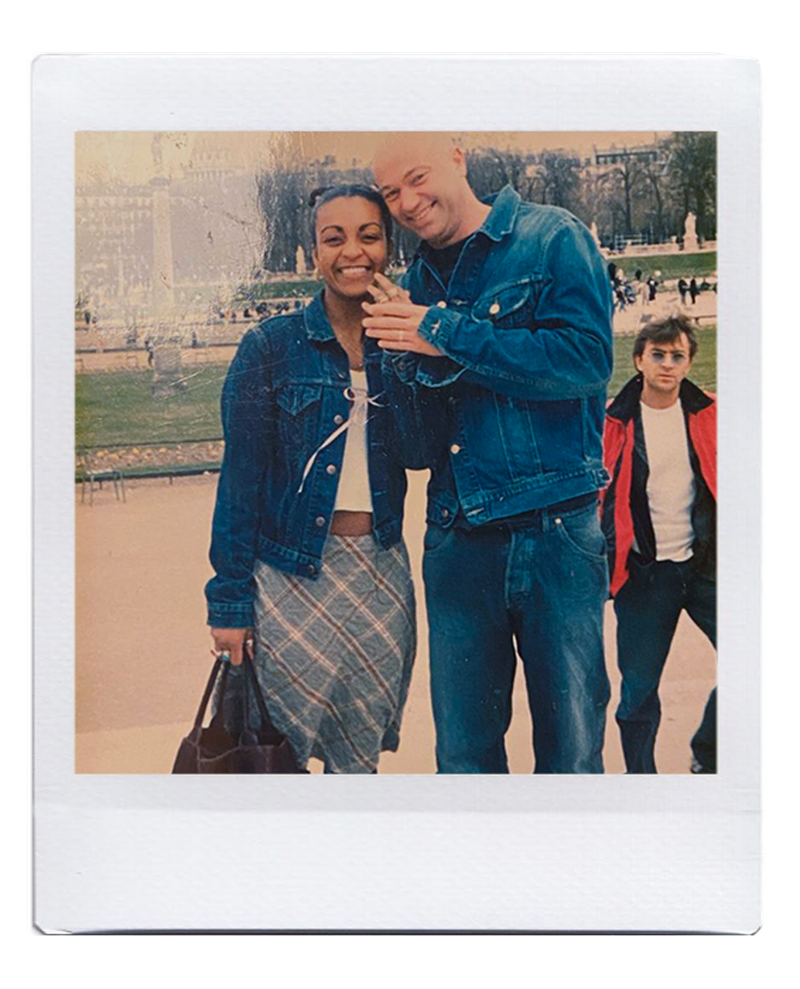
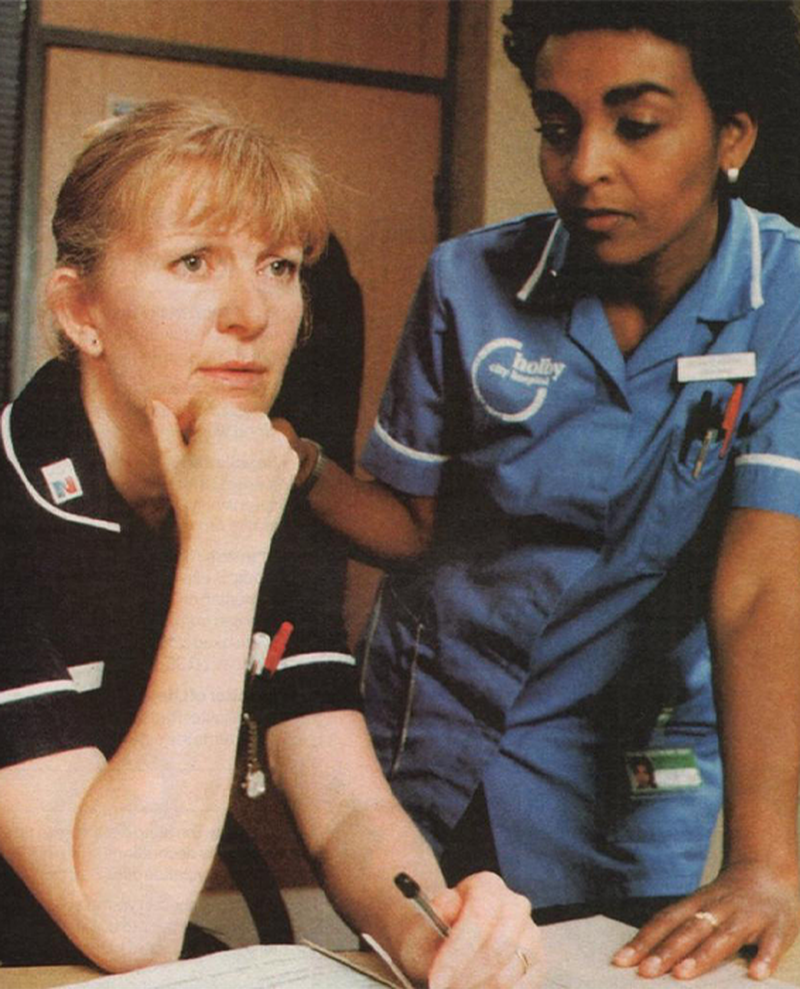
Chapter Six: Meeting My Husband
“I met my husband Howard at Battersea Arts Centre when I was 31. I had a theatre production company in the 90s with [actress and theatre director] Polly Irvin called Wild Iris. We both worked for women’s theatre groups and had both been punks back in the day. We put on loads of shows in the UK and abroad, and did radio shows too. We had a small office at the top of the arts centre and at the bottom was a lovely bookshop, where Howard worked. What was really great about him was that he was so knowledgeable about books. He’d worked at the first Waterstones on Charing Cross Road and he was a writer too. At the time, my first daughter – from a previous relationship – was about eight and she was often in the bookshop where Howard would read to her and all the other kids. He was great and he gave me discount on books, so of course I had to marry him. Later, we had two more children together.”
Chapter Seven: Bridgerton
“I first heard about Bridgerton when I was sent some lines about the character Lady Danbury. It wasn’t a full script, but the character leapt out of the page to me. Her wit, humour, self-deprecation and steeliness drew me in. On a sunny Friday, I went to audition for the role in Shoreditch. I was interested because I knew there were going to be several characters played by Black actors – and many of those parts were the aristocracy, including the queen. The fact it was a Regency period drama made it even more interesting.
“Lady Danbury reminds me of lots of women in my family, including my mother and grandmother, as well as my father’s sisters. Some are English and some are Ghanaian, but they all have this ability to endure life, make the most of it and have fun. They are also fiercely protective when needed, and they do not suffer fools who might be arrogant, superior or overbearing. All of them are also incredibly stylish. The way my grandmother would wear a velvet hat or matching two-piece was so chic, and the clothes she made for her grandchildren were all fabulous. In spite of all their hardships and obstacles, I have these women in my life who have the ability to make the most of it and cherish the friendships in their life. In all communities around the world, there are women who are making things happen, and they don’t always get the salute they deserve. So, I wanted to bring all of that into the character. I was adamant she would wear a hat and have a cane, but also have an edge of masculinity in her clothing and style.
“The first series has been one of Netflix’s most successful shows ever – 82 million households watched it around the world in the first 28 days. I have had to cope with a new level of fame since its release, but because it came out during lockdown it has felt different. Everything happened over Zoom. There were no big premieres or parties, so it was a level that I quite liked. That said, it was lovely that series one was released on Christmas Day when people were having a very different day to the one they had planned. I love being part of Bridgerton – it’s cast brilliantly, the sets are amazing and the costumes are fantastic.”
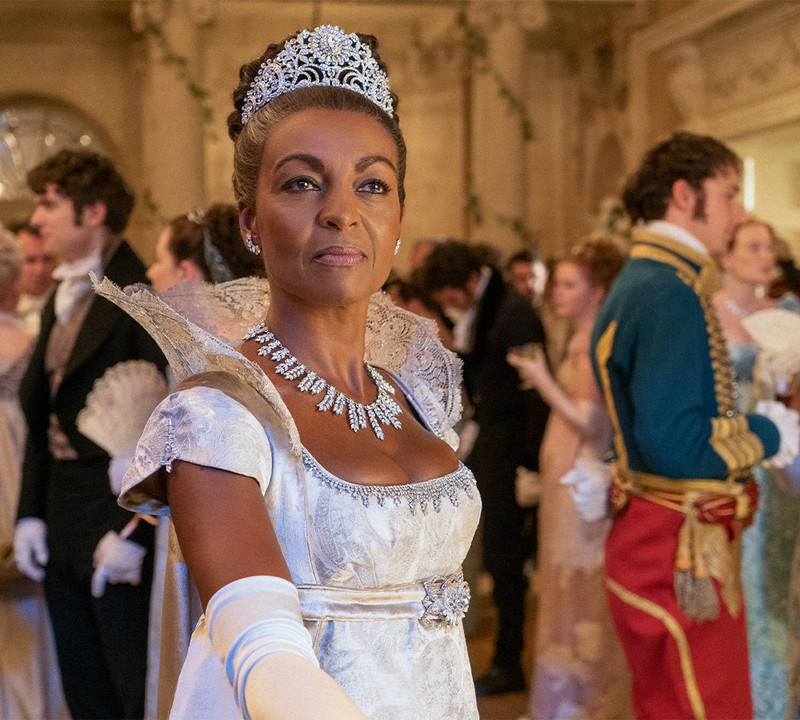
Chapter Eight: The Next Chapter
“We’re currently filming series two of Bridgerton which focuses on Jonathan Bailey’s character Anthony. I’m not allowed to say anything else about the series so far, but you’ll see how his courting affects the other characters and the fallout that follows. There are shenanigans afoot and I’m very excited for people to watch it. Sophie Canale is working on the costumes, so that’s something to definitely look forward to as well. I also have lots of producing projects in my head, some of which are materialising which is great. I’m acting in a couple of other dramas which will be released further down the line, as well as working on an origin story of Bridgerton, which will focus on Queen Charlotte, Lady Danbury and Lady Bridgerton. There are a busy couple of years ahead which is very exciting.
Follow Adjoa on Instagram and watch Bridgerton on Netflix.
DISCLAIMER: We endeavour to always credit the correct original source of every image we use. If you think a credit may be incorrect, please contact us at info@sheerluxe.com.

